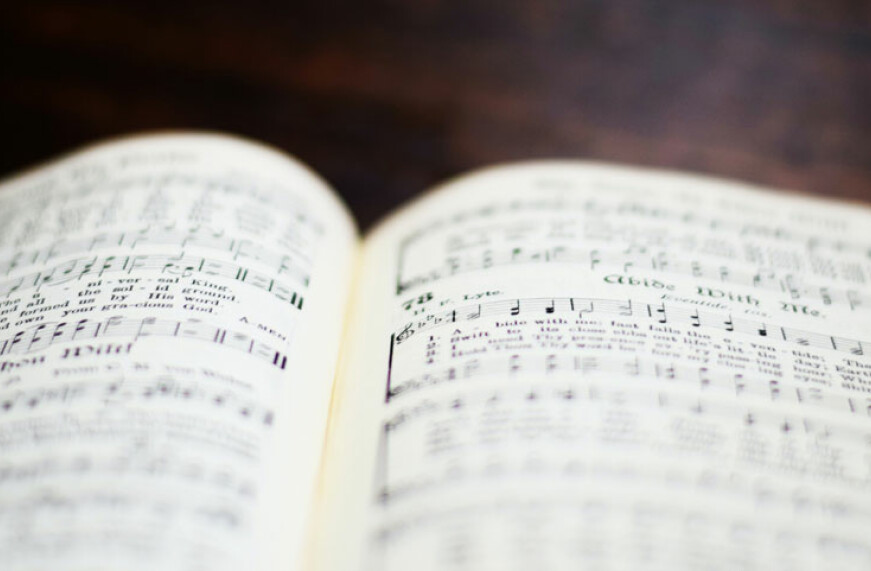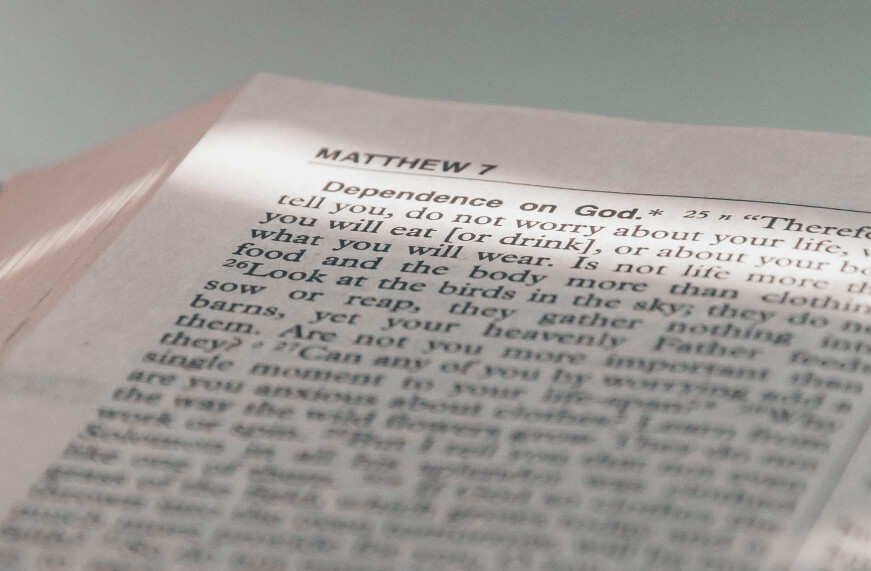Hymns and a hymn

Behold the singing of the saints! (or, Don’t miss the singing of the followers of Jesus!) Our singing gives us a way to praise God, remember his promises, cling to truth, lament, learn what faith lived out looks like, rejoice in the beauty of God, repent, hope, and encourage each other. On July 30 at 6pm, we’ll get an opportunity to really dig in to singing together at a Hymn Sing in the sanctuary. Some songs will be pre-selected, others chosen on the spot. Everyone is welcome.
One of the hymns of the church we’ve been singing this summer is “A Mighty Fortress is Our God.” It’s based on Psalm 46 which was written by the sons of Korah; Martin Luther paraphrased the psalm sometime between 1527 and 1529; and Frederick Hedge translated it into English verses in 1853. So followers of God and Jesus have been singing these truths for thousands of years! Below is my paraphrase of the hymn, using a dictionary and the articles linked below*. I enjoyed working on this for the Arts & Rec in a Box this summer and thought I’d share it here too! Let me know if you would have paraphrased something differently.
Verse 1
A mighty fortress is our God,
a bulwark never failing;
our helper he amid the flood
of mortal ills prevailing.
For still our ancient foe
doth seek to work us woe;
his craft and power are great;
and armed with cruel hate,
on earth is not his equal.
paraphrase
Our God is a strong and fortified enclosure around us, our God is a defensive wall that never breaks down;
God is our helper in the middle of all the deadly, sorrowful things that are poured out on us and he will triumph over them.
God protects us because our very old enemy searches for any way possible to cause us suffering, harm, and disaster;
our enemy has great skill in fooling and tricking us;
our enemy’s weapon is cruel hate, and there is no one on earth who has the same capacity or strength that our enemy does.
Verse 2
Did we in our own strength confide,
our striving would be losing;
were not the right man on our side,
the man of God's own choosing.
Dost ask who that may be?
Christ Jesus, it is he,
Lord Sabaoth his name,
from age to age the same,
and he must win the battle.
paraphrase
If we trusted in our own strength (to stand against our enemy) even our greatest efforts would not succeed;
but if God chose the right one to fight on our behalf against Satan, sin, and death, then things wouldn’t be so hopeless.
Do you want to know who that right one is?
It’s Christ Jesus!
Christ Jesus is called the Lord of Hosts–the One who has authority over the angel armies,
Christ Jesus is the same from one period of history to the next,
and Christ Jesus is going to win the fight.
Verse 3
And though this world, with devils filled,
should threaten to undo us,
we will not fear, for God hath willed
his truth to triumph through us.
The prince of darkness grim,
we tremble not for him;
his rage we can endure,
for lo! his doom is sure;
one little word shall fell him.
paraphrase
Even though this world that is filled with devils announces it will ruin and destroy us,
we don’t need to fear because it’s God’s will that God’s truth will have great victory through us.
We don’t need to shake from fear over the horrible, seriously frightening prince of darkness;
we can bear his extreme anger and fury,
because–and let’s all pay attention to this amazing truth–our enemy is set on a fixed course to destruction that’s impossible for him to avoid;
the prince of darkness will be powerless when we, by faith, call him out for what he is: a liar.
Verse 4
That Word above all earthly powers,
no thanks to them, abideth;
the Spirit and the gifts are ours
through him who with us sideth.
Let goods and kindred go,
this mortal life also;
the body they may kill:
God's truth abideth still;
his kingdom is forever.
paraphrase
Jesus, the Word, is higher in rank than the most powerful beings on earth (people and devils) and he will continue forever with no help from anyone;
Jesus is on our side and he gives us the Holy Spirit and the Spirit’s gifts such as wisdom, knowledge, and faith (see I Cor. 12:8-10).
So don’t hold on to possessions, family, or even this life that’s not permanent, because when all those things end, God’s truth will still remain and we will be in his kingdom forever.
Hope to see you Sunday. Pastor Michael will be opening I Samuel 20 with us where we see the beauty of David and Jonathan’s friendship; and we’ll be singing “A Mighty Fortress!”
*What “One Little Word” Will Fell Satan?
*What Do the Lyrics of “a Mighty Fortress” Mean?
Photo by Zack Smith on Unsplash


